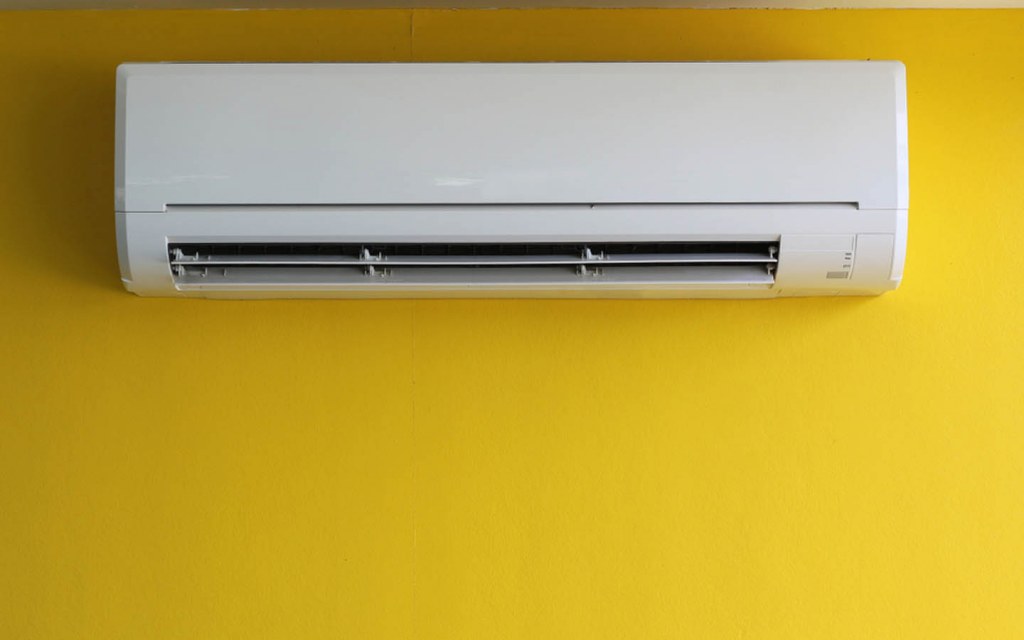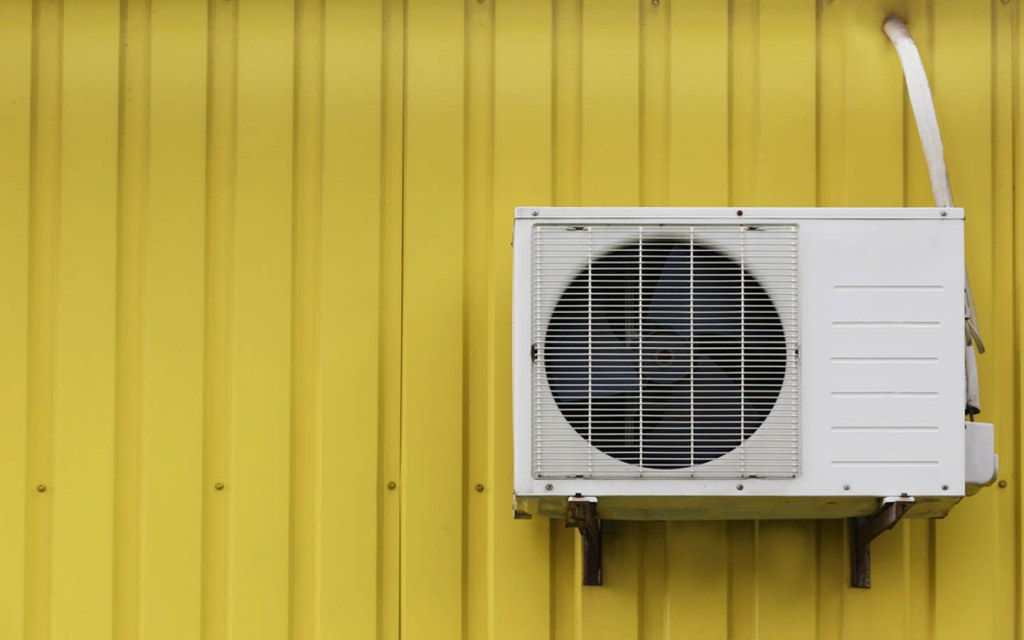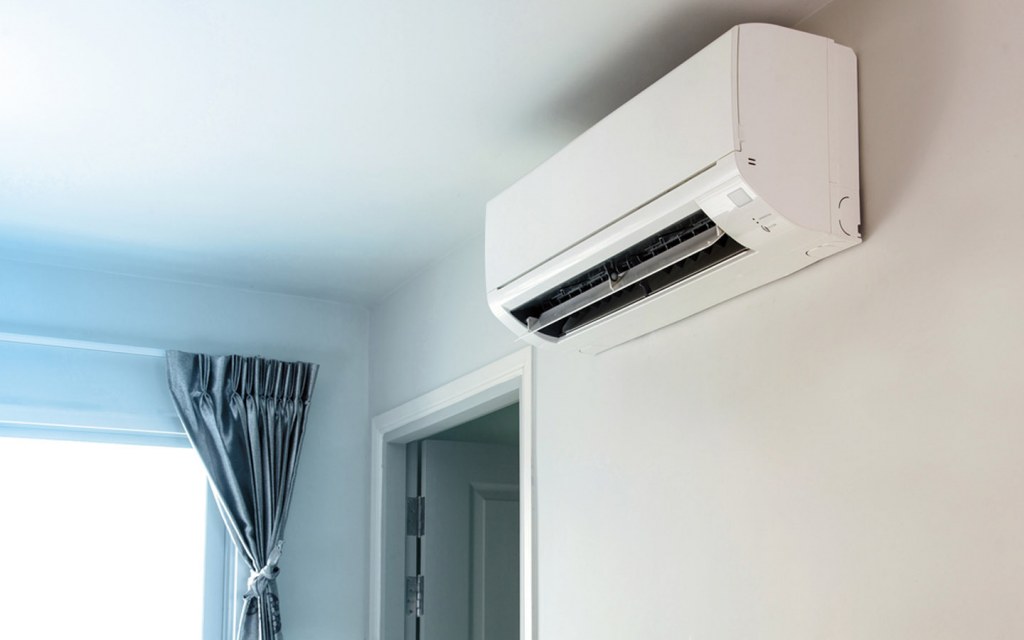IN THIS POST
– Inverter AC vs normal AC differences
– Pros and cons of inverter ACs
– Which one to buy?
Summers in Pakistan can be quite harsh, especially for those dwelling in the Southern region, where the temperature can reach great heights between May and August. As you would expect, it is during these few months when consumers in large numbers buy air conditioners (ACs) to beat the heat. However, despite air conditioning quickly becoming a necessity in most cities of Pakistan instead of being considered a luxury, a lot of people are still unaware of the differences between an inverter AC and a normal AC. In fact, when it comes to the inverter AC vs normal AC debate, most of them tend to choose the less-expensive option without getting down to the nitty-gritty.
Since summer is finally here, it’s about time we understand the differences between these two types of air conditioners used widely in residential and commercial properties. Moreover, we’ll also be answering some of your most pressing questions, such as what is an inverter AC? How much electricity does an inverter air conditioner use? Is the inverter AC worth buying? And more importantly, which one of these will help lower your power bill?
Main Differences between Inverter AC and Normal AC

Though these ACs may look exactly the same, there are quite a few dissimilarities between the two. Here are the main differences between splits and inverter ACs.
- Operation and compressor efficiency
- Energy consumption
- Noise
- Cost
- Impact on the environment
Let’s discuss the inverter vs normal AC differences in detail below.
Operation and Compressor Efficiency
This is one of the biggest differences between inverter and non-inverter air conditioners.
In normal split air conditioners, the compressor is just limited to two modes of function: on and off. It runs at a fixed speed until the room reaches the desired temperature and then shuts off, only to restart and resume its function once the room gets warmer. For example, if you’ve set your normal AC to 26 degrees Centigrade, the compressor will stop running once the temperature of the room drops down to 26 degrees. However, once the room begins to get warmer, which could only take a few minutes, and the temperature reaches 28 degrees Centigrade, the compressor will restart.
On the other hand, the compressor runs at variable speeds, which effectively controls its cooling capability. Instead of turning off, the compressor adjusts itself to run at a lower speed once the set temperature is reached and increases its speed once the room gets warmer. For example, keeping the above-mentioned example in mind, if an inverter AC is set to 26 degrees Centigrade, the compressor will slow down once the desired temperature is achieved and will slowly increase its speed if the room gets warmer by even a single degree.
This is, obviously, a simplified explanation for an easier understanding. But to put it simply, compressors in normal ACs are either switched on or off depending on the temperature within the area, which is gauges using a basic sensor. Meanwhile, the compressor in an inverter AC controls and adjusts its speed as needed. These air conditioners mostly use an advanced sensor to keep the temperature within a predetermined range.
Moreover, compressor efficiency in inverter ACs is higher than the normal ACs.
Energy Consumption
Inverter AC vs normal AC power consumption is also a huge debate in itself.
Since the compressor in a normal air conditioner stops and starts quite frequently, while that in an inverter AC runs constantly, you’d think the latter consumes more energy.
However, that’s not true.
In reality, inverter ACs are much more energy efficient because they automate the cooling process and adjust the power consumption as needed. The compressors in non-inverter ACs, on the other hand, work in a fixed manner. Since it only works at full power or no power, the energy consumption is high. In addition to that, the compressor motor in normal ACs requires a large amount of energy in order to restart.
Needless to say, this impacts your monthly utility bill as well.
Conversely, if an inverter air conditioner has a lower capacity than what is required, it might consume more power if run for a long duration of time. This is because the compressor will be forced to work overtime while running at a higher speed.

Noise
Have you noticed how the outdoor units of some air conditioners make a lot of noise while the others don’t?
The outdoor units of non-inverter air conditioners generate a lot more noise compared to those of inverter ACs. The reason is pretty simple: the compressor motor in normal ACs turns on and off automatically, while the motor in inverter AC runs at variable speeds throughout its operation and does not create much noise.
Cost
When it comes to buying air conditioners, inverter ACs are relatively more expensive than the normal ones owing to their use of the latest technology such as energy-efficient compressors and advanced sensors. This is a major difference between inverter AC and normal AC.
But even though they are more costly, inverter ACs can reduce your power consumption and subsequently your electricity bill, making it a long term investment.
It is also important to mention that while normal ACs are a little cheaper, their maintenance cost is higher due to the general wear and tear resulting from the compressor motor shutting off and turning off at rapid intervals.
This also means inverter air conditioners have a relatively long life span compared to the normal units.
Impact on the environment
Another big difference between inverter AC and non-inverter AC is their respective impact on the environment.
All air conditioning units use refrigerants, which is a substance that changes from gas to liquid in order to allow the cooling and lower the temperature to the desired level. Most non-inverter air conditioners use R-22 refrigerant, which contains a chemical compound called hydro-chlorofluorocarbon (HCFC) that is hazardous for the ozone layer. It is cheaper and thus widely used.
Inverter ACs are comparatively eco-friendly as they generally use next-generation refrigerants such as R-410 A or R-32. These refrigerants are not only environment-friendly but are also more energy-efficient.
Pros and Cons of Inverter ACs

Now that we have compared the features of inverter AC vs normal AC, here is a breakdown of major pros and cons of inverter ACs.
Pro: Their operation is rather noiseless since they keep working at a low power instead of turning on and off.
Con: Inverter air conditioners are priced higher than the normal ACs
Pro: Buying an inverter AC should be considered as a one-time investment since you save money in the long run, owing to reduced electricity bills.
Con: The cost of repair and maintenance for inverter ACs is also higher than that of the normal ones
Pro: Inverter air conditioners lower a room’s temperature at a much faster rate
Con: Compressors will low capacity may consume more energy if run for a long period of time
Pro: These ACs generally have a longer life span
Con: If you keep switching your inverter AC on and off, the power saving won’t be significant as the compressor motor will have to restart every single time
Pro: Inverter ACs are more environment and earth-friendly compared to their counterpart
Inverter AC vs Normal AC: Which one should you buy?

Your decision to buy inverter AC vs split AC comes down to your usage.
If you live in an area where you only have to use your air conditioner for a couple of months at most, installing a regular split air conditioner would be fine. But if you live in a warmer city like Karachi that experiences summer for up to 7 months a year, investing in an inverter AC might be a smart choice.
Moreover, as per the experts, if an AC has to run for more than 5 hours every day, buying one with inverter technology would be better for your monthly utility expenses. However, if you have to only use it for about 3 to 4 hours every day for only a few months, installing a normal AC would be fine as well.
So, which of these air conditioning units will you be getting for your home or office? If you have any questions about installing normal AC vs inverter AC, share them with us by dropping an email at blog@zameen.com.
Meanwhile, if you’re looking to learn more about smart gadgets for home or how to make your home feel light and airy in summer, stay connected to Zameen Blog – the best lifestyle and property blog in Pakistan. You can also like our Facebook page to stay up-to-date about the latest developments in the real estate sector.



